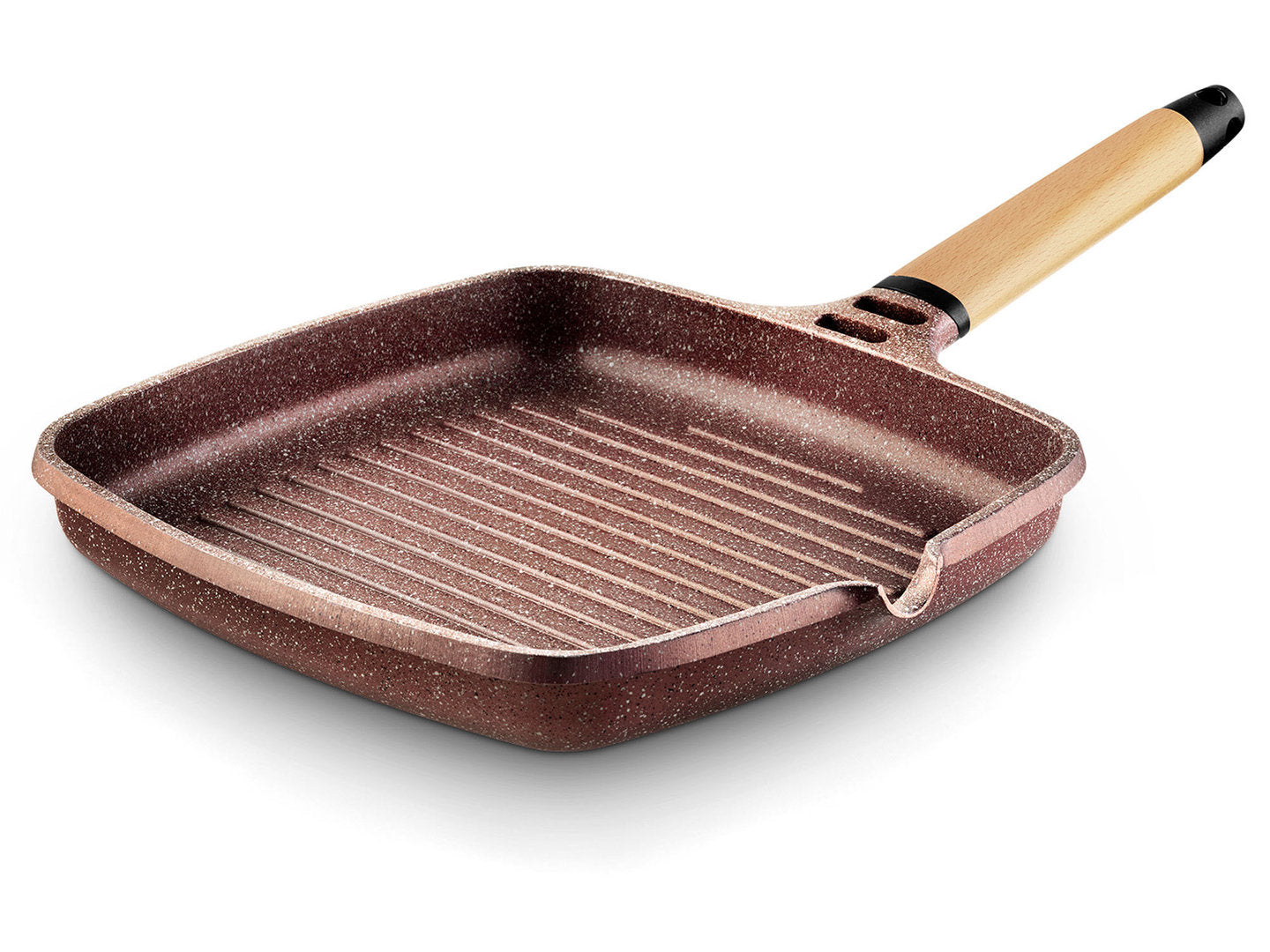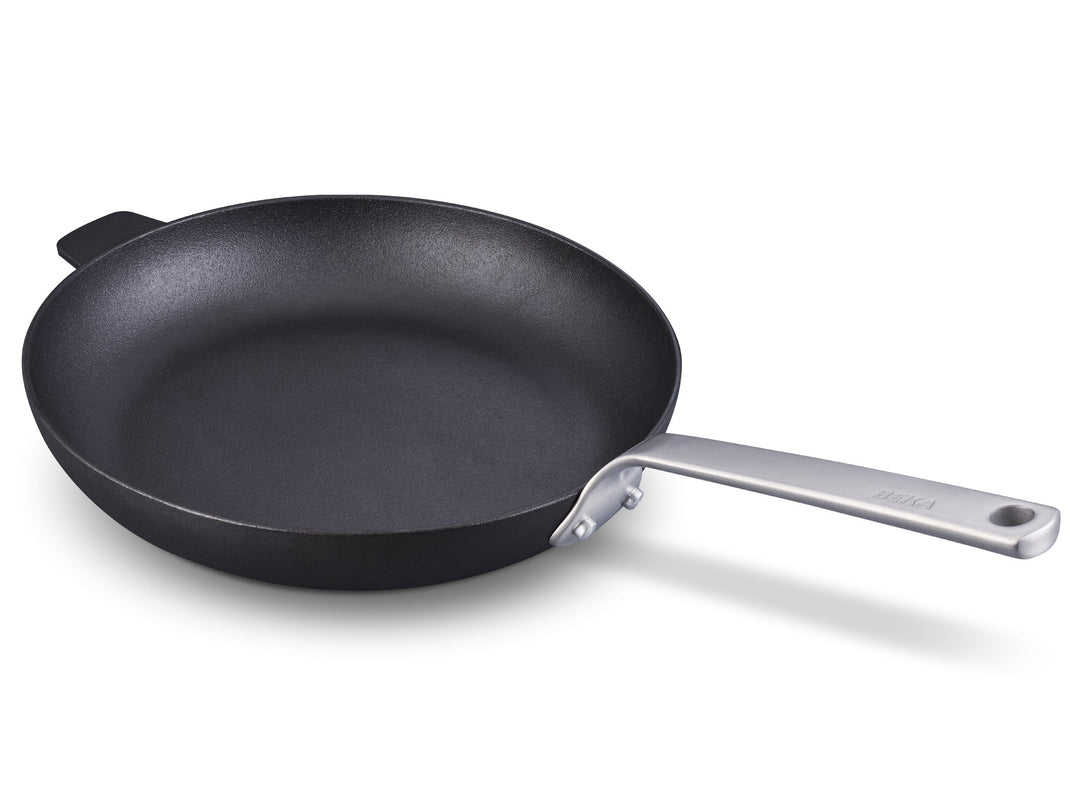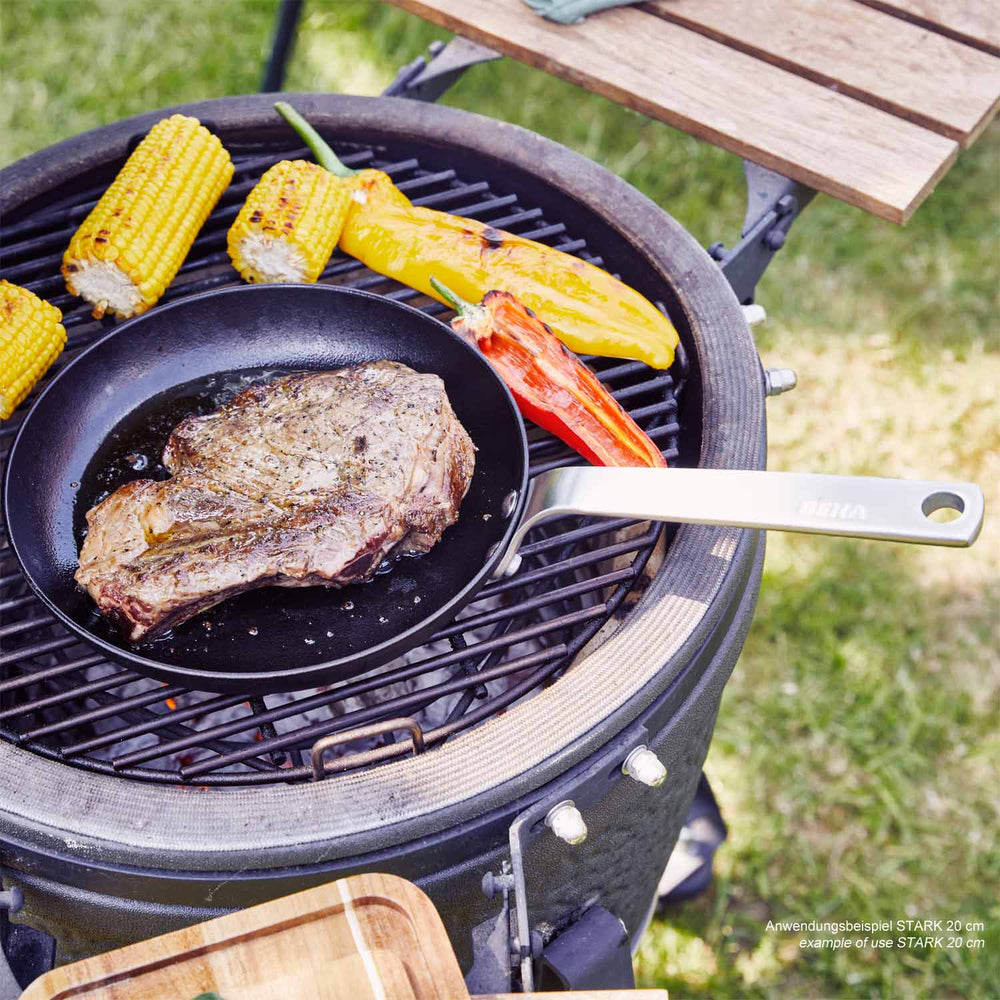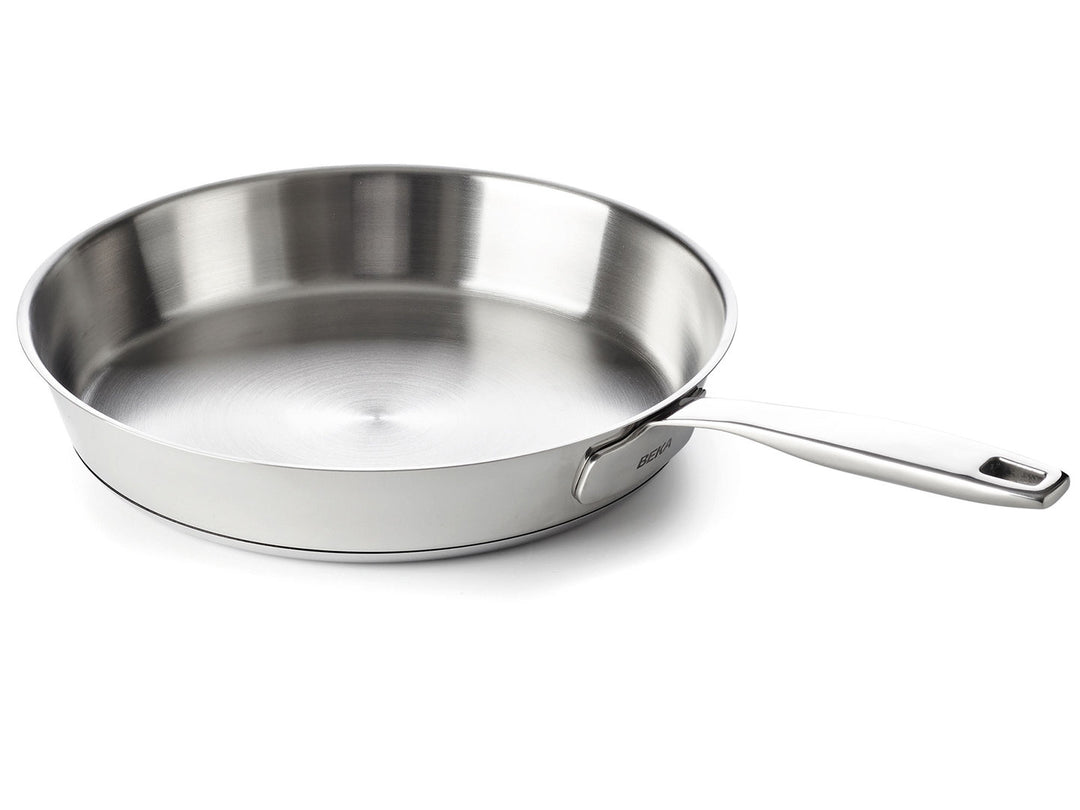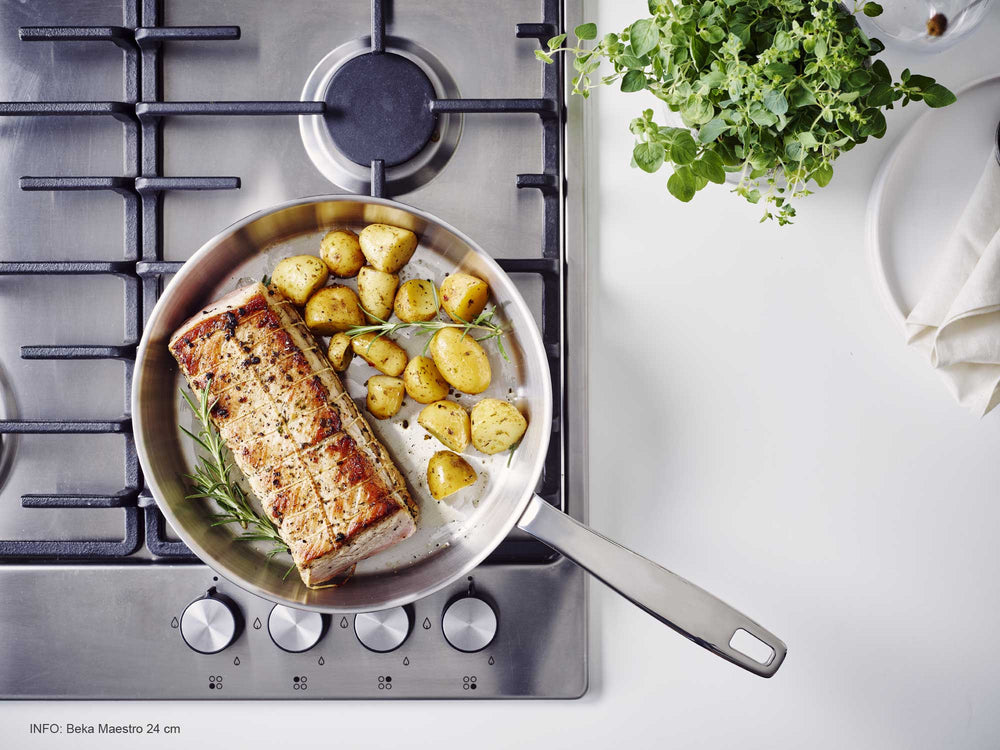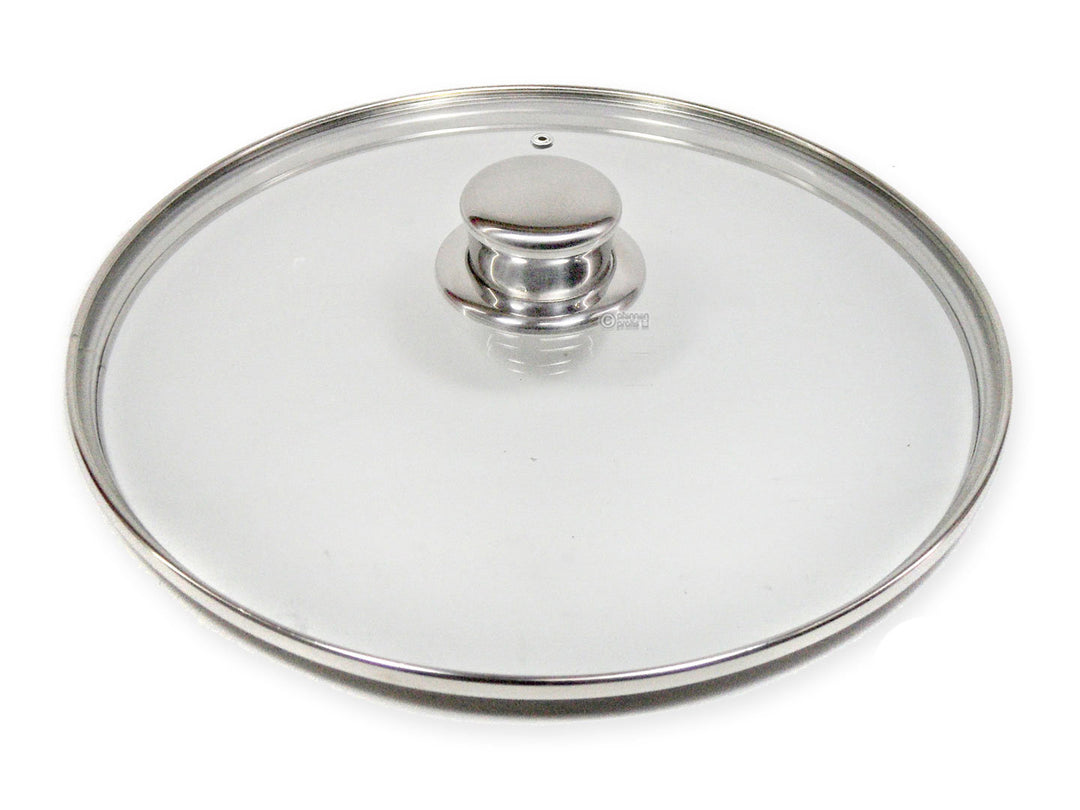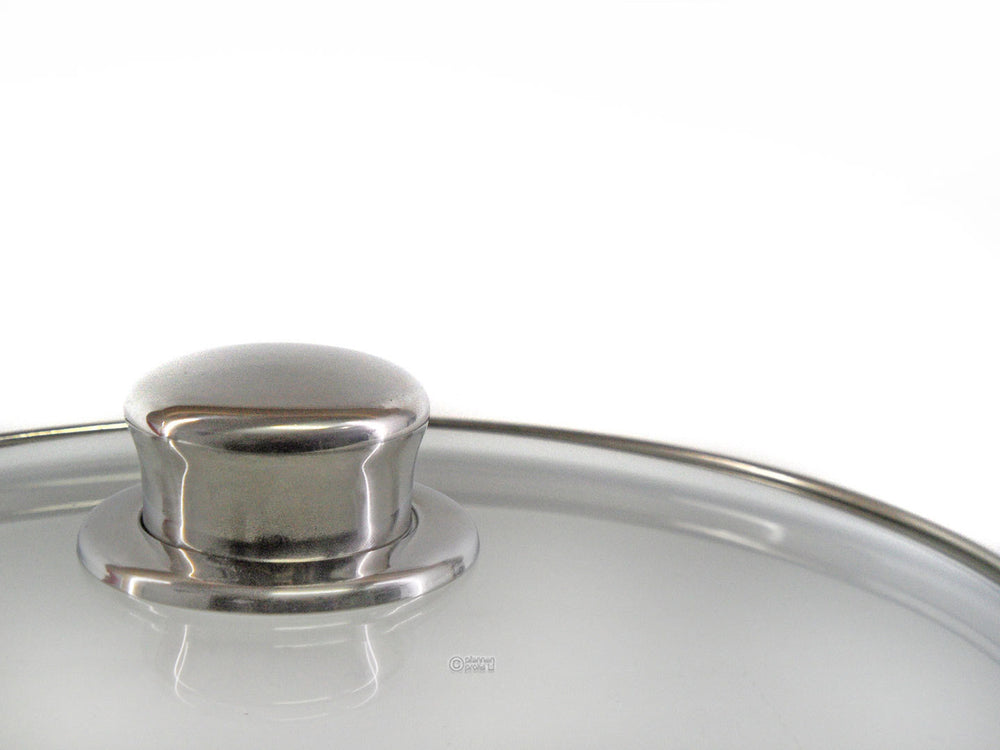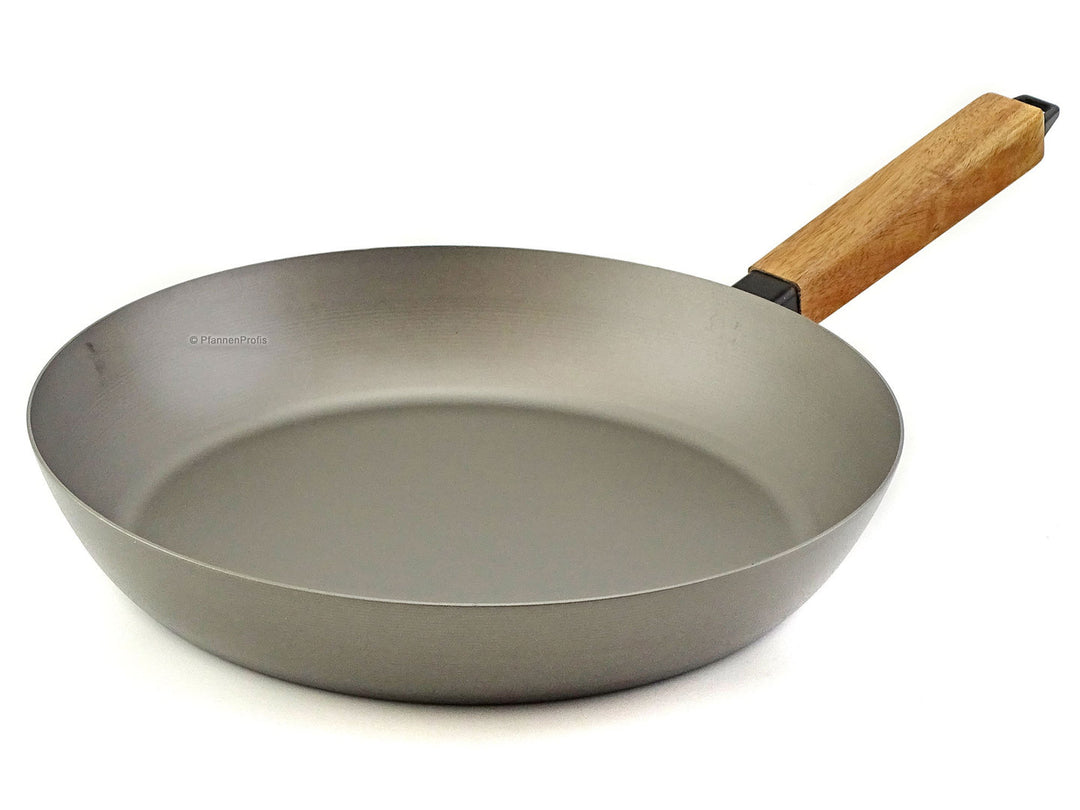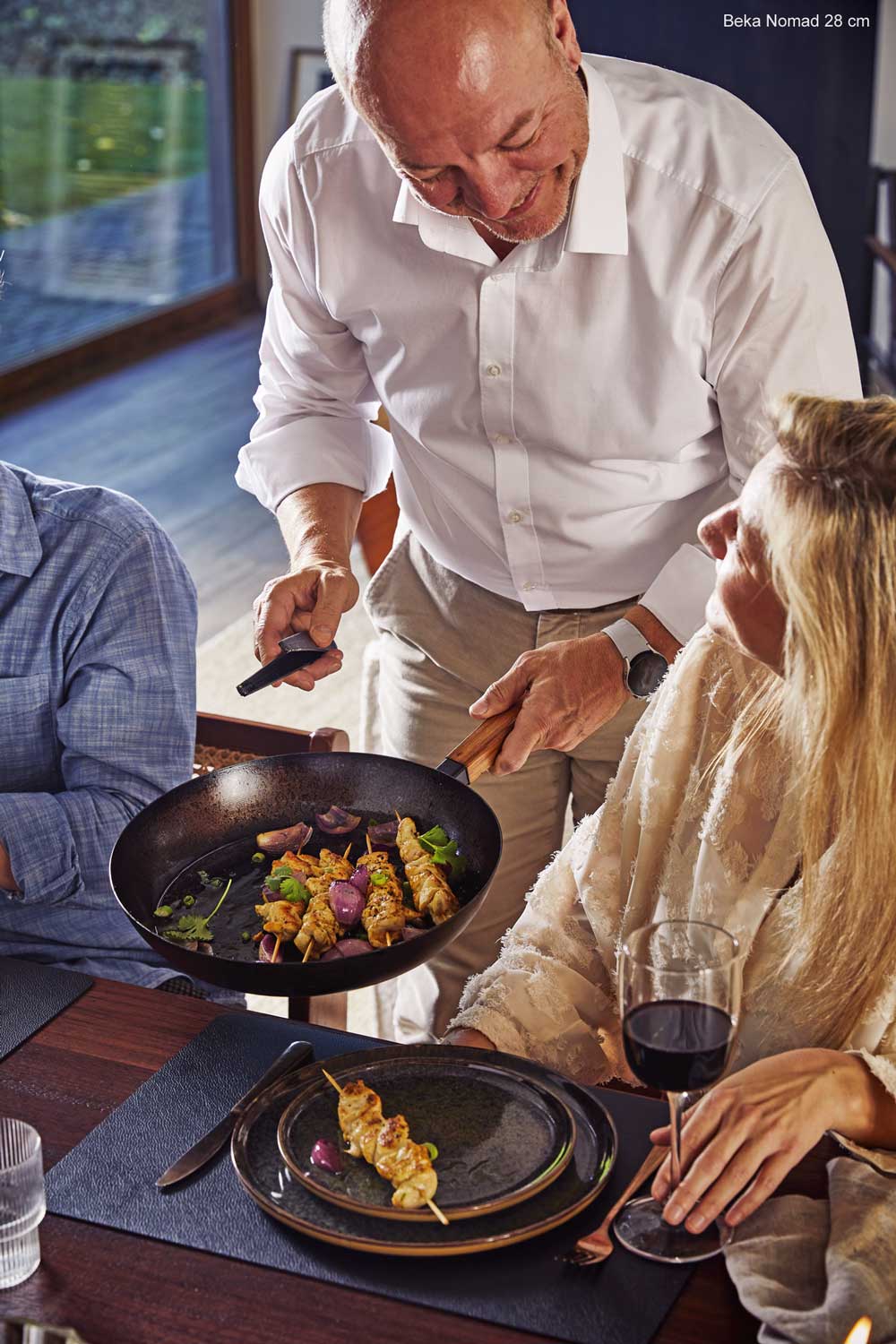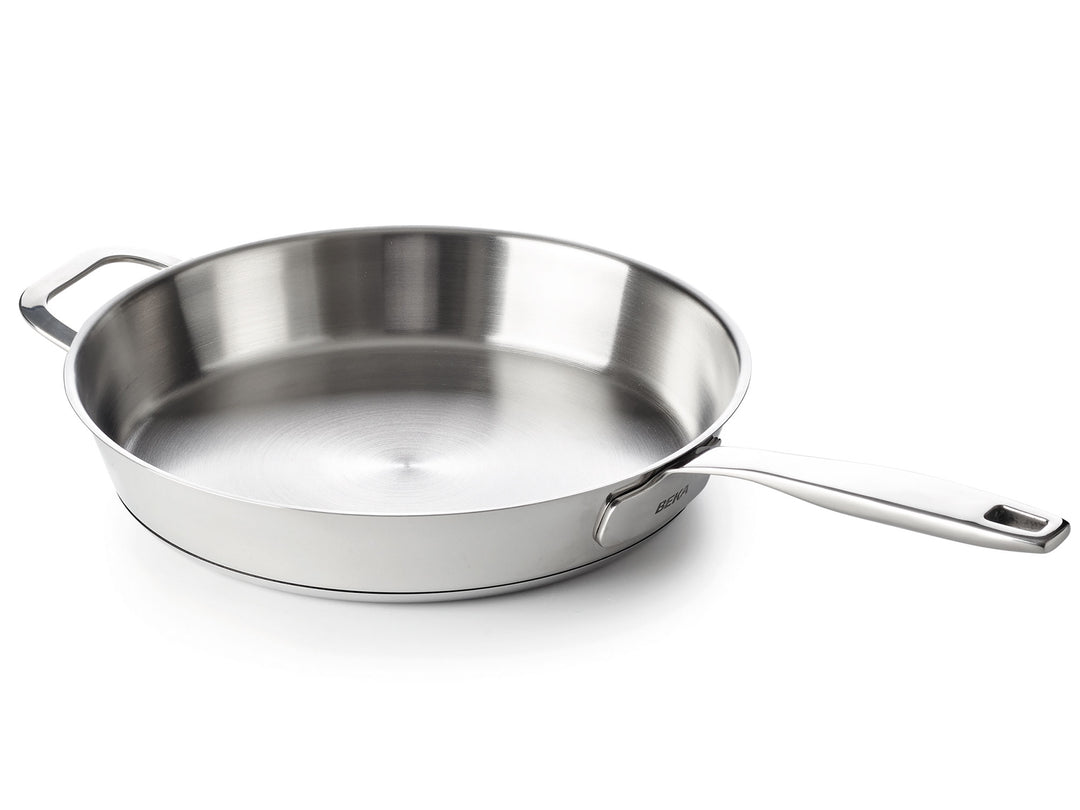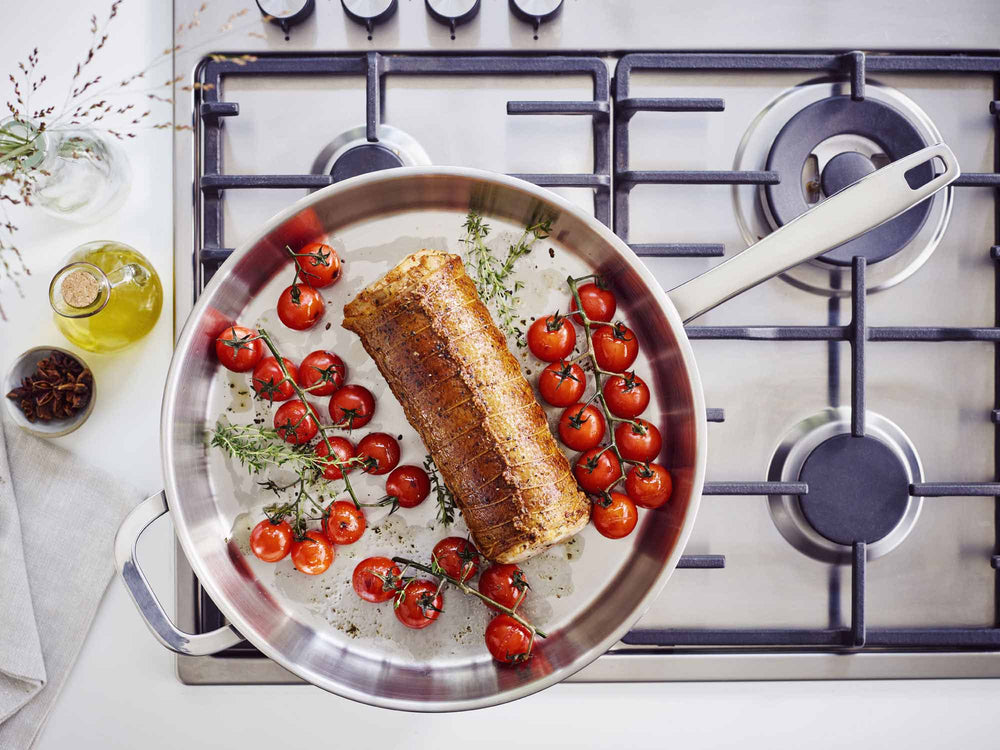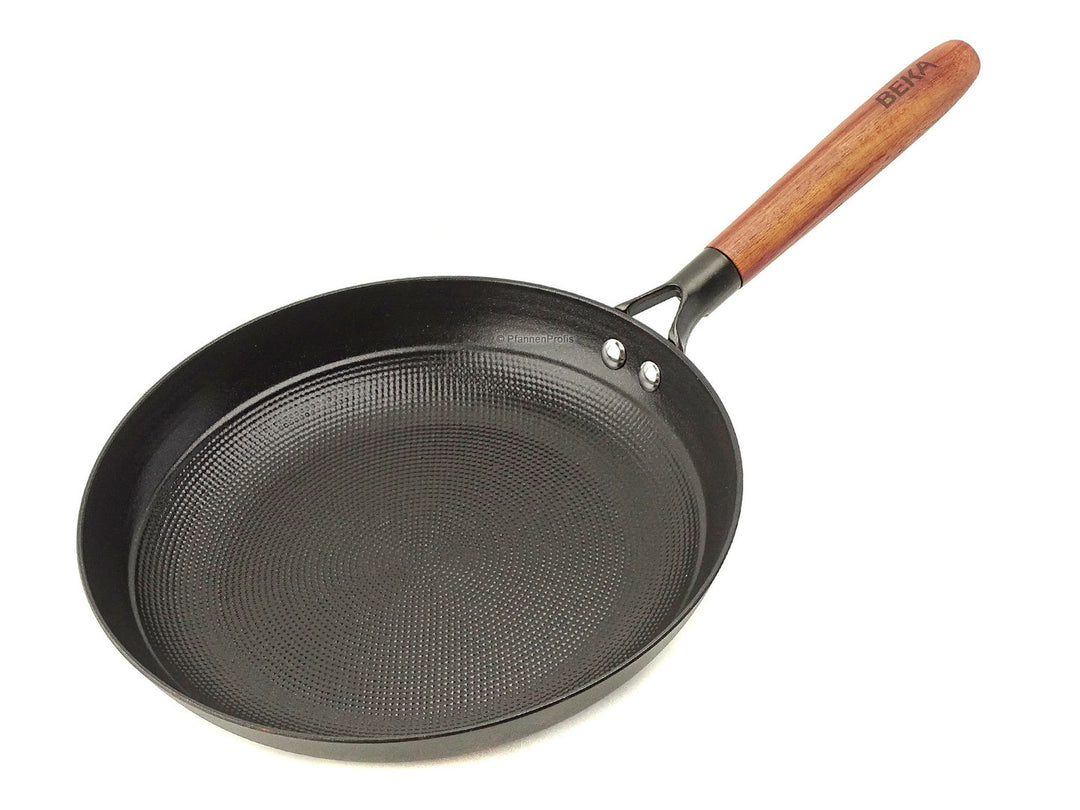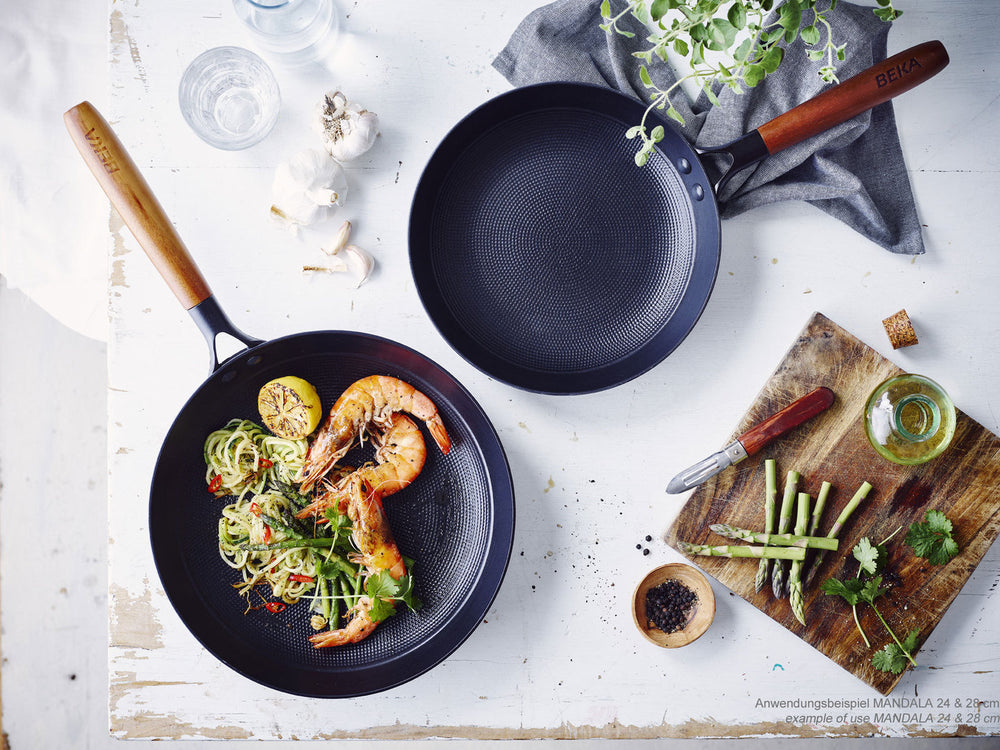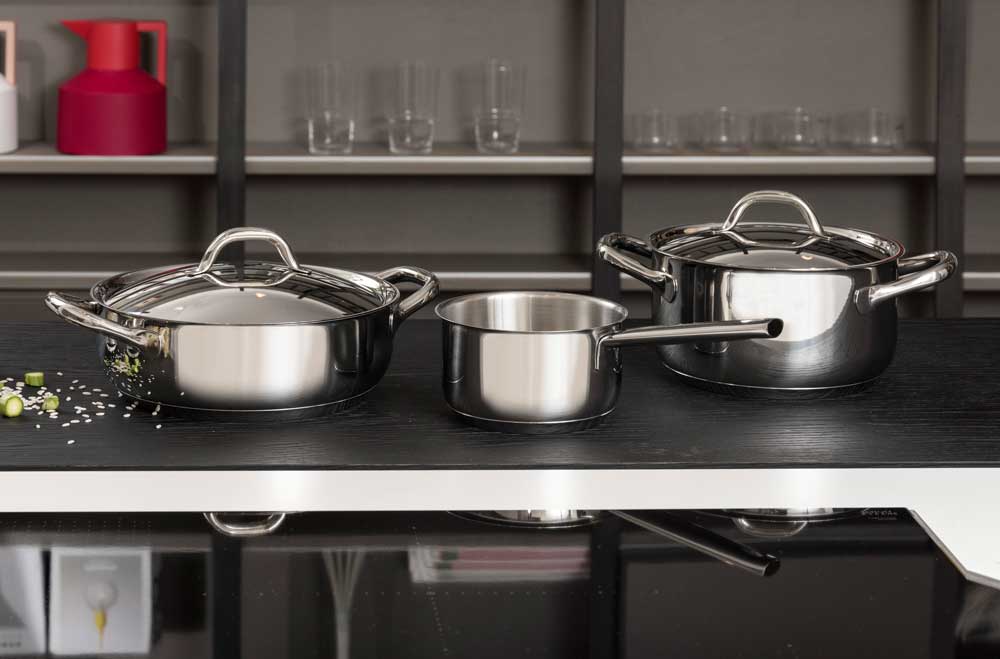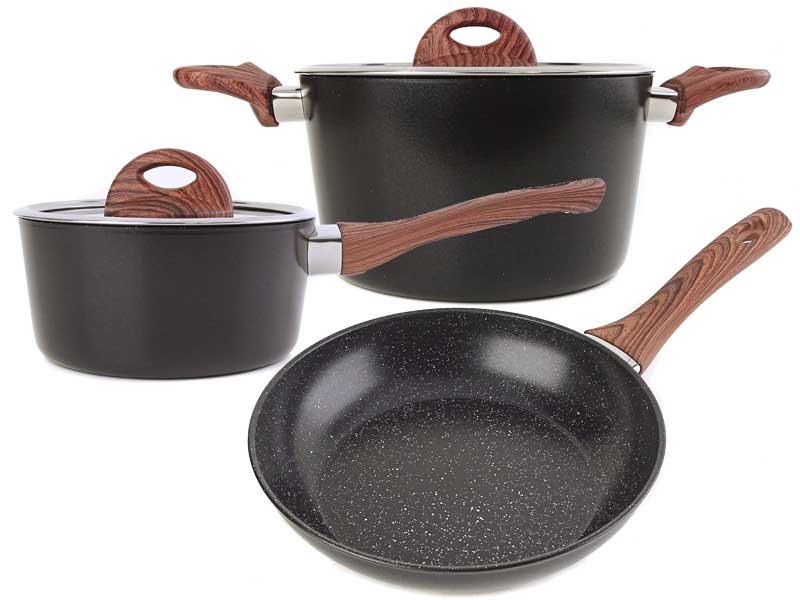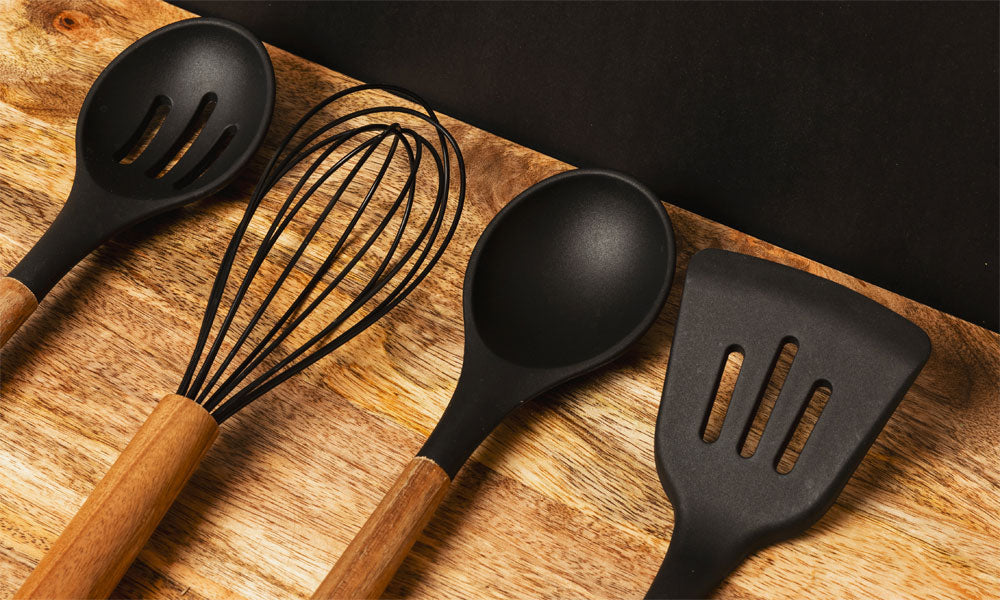Large cast iron pan without artificial coatings.
With the Stark collection, Beka enters the territory of classic, raw, i.e. non-enameled cast iron pans, as they have become indispensable in the Scandinavian kitchen. Stark cast iron pans are an expression of healthy cooking without any artificial coatings using a durable and natural material.
Already pre-seasoned
To get started right away, Stark cast iron pans have already been pre-seasoned with vegetable oil at the factory. So the foundation for a beautiful patina that will continue to improve frying properties over time has already been laid.
Perfect also for induction, oven and grill
Stark cast iron pans are suitable for all types of stoves and also work perfectly on induction hobs. The elegant stainless steel handle is permanently riveted, remains pleasantly cool when used on the stove and also allows the pan to be used in the oven or on the grill without any problems.
- A quality product from BEKA.
- Durable cast iron pan, uncoated, baked with vegetable oil.
- Very good frying properties and excellent heat retention.
- Stable bottom, approx. 3.8 mm thick.
- Long stainless steel handle with heat-insulating hollow profile, solidly riveted.
- Helper handle made of cast iron. (Please use potholders).
- Upper inner diameter approx. 29 cm. Not suitable for 30 cm lids!
- Height approx. 5 cm.
- Length with handle approx. 55 cm.
- Bottom diameter (footprint) approx. 22.5 cm.
- Weight approx. 2.5 kg.
- Suitable for all types of stoves, also perfect for induction.
- Suitable for the oven (max. 200° C to prevent tarnishing of the stainless steel, which is harmless in itself).
- Suitable for the grill.
PfannenProfis application tip: It is good old practice to first fry insensitive foods a few times in a new raw cast iron pan so that the pores in the still young seasoning layer can become saturated with fat, so to speak. For example, frying fatty bacon in the new pan has proven successful. Once you have fried insensitive foods in the new pan a few times, you can venture into more delicate foods such as egg dishes or starchy foods.
Cookware made of raw, unsealed cast iron may show traces of the casting process (small bumps or indentations); such production marks do not constitute grounds for complaint.
diameter: 30 cm
material: Gusseisen
coating: keine
induction-suitable: ja
ovenproof: ja
handle material: Edelstahl
handle attachment: genietet
dishwasher-safe: nein
Understanding the information on the size / diameter, height and capacity of cookware:
1) The most important information: diameter = upper inner diameter

The diameter is the most important indication of the size of pots and pans. The measurement is taken at the top inside , i.e. on the inside of the pan/pot rim; hence the designation upper inner diameter, which you will find in our item descriptions. A 28 cm pan has a diameter of 28 cm from one inner edge to the other inner edge. This measurement method is an international standard and authoritative, unless expressly stated otherwise in the item description.

For square pans (e.g. many grill pans) and roasters, the size is given as the product of two lengths. Here you measure again at the top inside, at the longest point, which is usually in the middle. For example, many grill pans have a size of 28 x 28 cm.
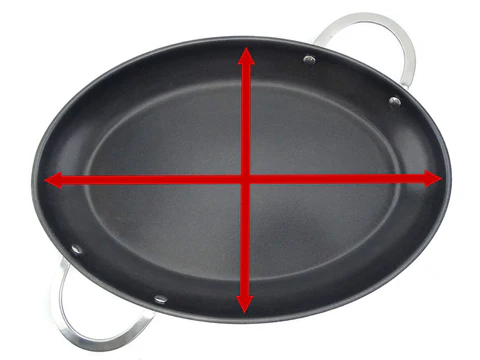
Fish pans and roasters often have an oval shape. As shown above with the square pans, the longest internal dimension is given here. Such a 38 cm fish pan has an inner length of 38 cm on its longest side. At right angles to this is the short side of eg 24 cm. As a result, the pan would be declared as 38 x 24 cm.
2) Bottom diameter = contact surface
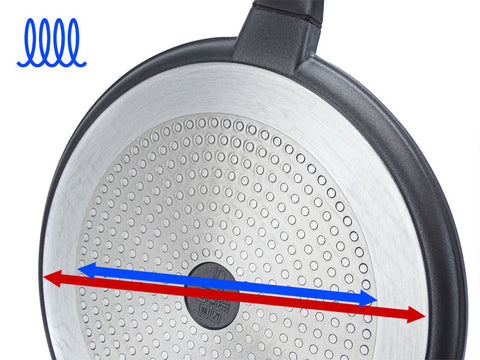
When we talk about base diameter, we mean the diameter of the contact surface, i.e. the surface with which the pan, pot or roaster stands on the stove. Not meant is the frying surface! The information about the base diameter can be helpful when it comes to choosing a suitable cooking surface for the cookware. The size of the cooker and the diameter of the base of the cookware should match to a certain extent in order to avoid damage to the cookware and to ensure that the cookware functions as well as possible.
ATTENTION, induction-suitable aluminum cookware:
Please note that cookware made of aluminum / cast aluminum for induction cooking usually has a stainless steel disc on the base, the diameter of which is often smaller than that of the base (marked in blue in the picture). Where this applies, you will find the corresponding information in our item descriptions.
3) Height of pots and pans

Unless expressly stated otherwise, the indication of the height of a cookware describes the outer edge height, from the top edge of the cookware perpendicularly to the contact surface, without taking lids, handles etc. into account.
The inner height (i.e. from the frying surface up to the edge) can be determined approximately by subtracting the base thickness from the height.
4) Capacity of a cookware

When it comes to capacity, there are often misunderstandings: the capacity of a cookware indicates how much the container can hold at most. That always means filling up to the brim! This is international standard. The filling quantity that can be used when cooking is always less than the capacity.
Please note that in the case of pressure cookers, for safety reasons, the filling quantity permitted in pressure cooking is significantly lower than the capacity of the pot.
 DE: 4.90 €, free from 150 € purchase value
DE: 4.90 €, free from 150 € purchase value
 EU: from 9.90 €
EU: from 9.90 €
 UK: from £16.90, delivered duty paid
UK: from £16.90, delivered duty paid
 CH: 19.90 € (duties & charges may apply with / after delivery)
CH: 19.90 € (duties & charges may apply with / after delivery)
 USA & CND: from 35.70 € (duties & fees may apply with / after delivery)
USA & CND: from 35.70 € (duties & fees may apply with / after delivery)
More details about shipping costs here.


